 Movies and TV
Movies and TV  Movies and TV
Movies and TV  Health
Health 10 Miraculous Advances Toward Curing Incurable Diseases
 Miscellaneous
Miscellaneous 10 Undeniable Signs That People’s Views of Mushrooms Are Changing
 Animals
Animals 10 Strange Attempts to Smuggle Animals
 Travel
Travel 10 Natural Rock Formations That Will Make You Do a Double Take
 Movies and TV
Movies and TV 10 Actors Hidden in Your Favorite Movies
 Our World
Our World 10 Science Facts That Will Change How You Look at the World
 Pop Culture
Pop Culture 10 Incredible Female Comic Book Artists
 Crime
Crime 10 Terrifying Serial Killers from Centuries Ago
 Technology
Technology 10 Hilariously Over-Engineered Solutions to Simple Problems
 Movies and TV
Movies and TV 10 Movie Adaptions That Brought Popular Songs to Life
 Health
Health 10 Miraculous Advances Toward Curing Incurable Diseases
 Miscellaneous
Miscellaneous 10 Undeniable Signs That People’s Views of Mushrooms Are Changing
Who's Behind Listverse?

Jamie Frater
Head Editor
Jamie founded Listverse due to an insatiable desire to share fascinating, obscure, and bizarre facts. He has been a guest speaker on numerous national radio and television stations and is a five time published author.
More About Us Animals
Animals 10 Strange Attempts to Smuggle Animals
 Travel
Travel 10 Natural Rock Formations That Will Make You Do a Double Take
 Movies and TV
Movies and TV 10 Actors Hidden in Your Favorite Movies
 Our World
Our World 10 Science Facts That Will Change How You Look at the World
 Pop Culture
Pop Culture 10 Incredible Female Comic Book Artists
 Crime
Crime 10 Terrifying Serial Killers from Centuries Ago
 Technology
Technology 10 Hilariously Over-Engineered Solutions to Simple Problems
Top 10 Obscure Wars
The idea for this list came from two of my interests: history and knowledge of obscure and/or useless facts. The following list covers obscure wars (including lesser-known campaigns of widely known wars) that I found, although there are countless more obscure wars out there. I happened to find these ten personally interesting and was able to get sufficient information to write about them. Enjoy!
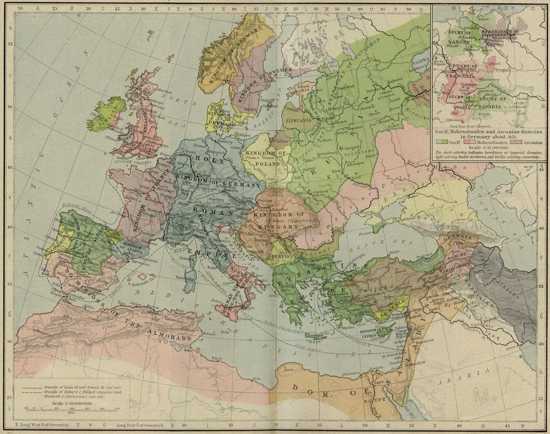
Many are familiar with the Crusades in which Christian forces clashed with Muslim forces in an effort to regain access to Christian holy sites around Jerusalem. However at the same time Crusades were underway in the Holy Land, the Northern Crusades were occurring in Scandinavia. In these Crusades, the goal was to eliminate the various pagan groups and their followers.
The Northern Crusades began with the Wendish Crusade in 1147. The Kingdoms of Denmark and Sweden, the Teutonic Order, and the Livonian Brothers of the Sword (the latter two being religious military orders) invaded what is now northeast Germany in an effort to subdue the region’s pagan peoples. Following this military success, Pope Celestine III officially called for a crusade against the pagans in 1195. The Northern Crusades lasted into the late 1200s and resulted in the military conquest of north Germany and the Baltic States and the spread of Christianity to these lands.
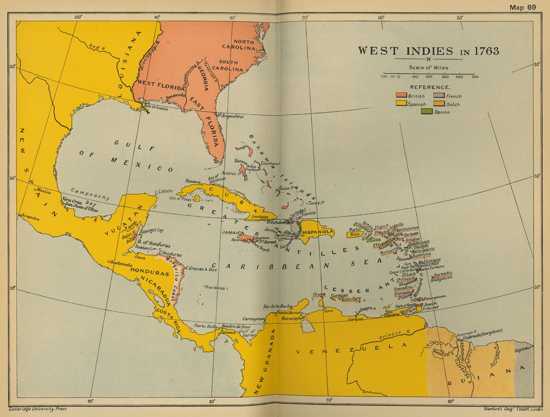
The War of Jenkins’ Ear was fought in the Caribbean and what is now Georgia and Florida between Great Britain and Spain. This conflict was part of the larger War of the Austrian Succession, a war which involved nearly every country in Europe. Its unusual name was born from a naval incident in the West Indies: Captain Robert Jenkins’ boat was boarded by Spanish forces. The Spanish captain accused the British vessel of piracy and as a result, cut off Captain Jenkins’ left ear.
Some accounts say Captain Jenkins presented his severed ear as he delivered his story to the House of Commons. Regardless if this was actual true, the boarding action by the Spanish was enough to be an act of war. The War of Jenkins’ Ear proved to be a fruitless effort, as there were no territorial changes in the Americas for either Britain or Spain once the main war in Europe had come to an end.
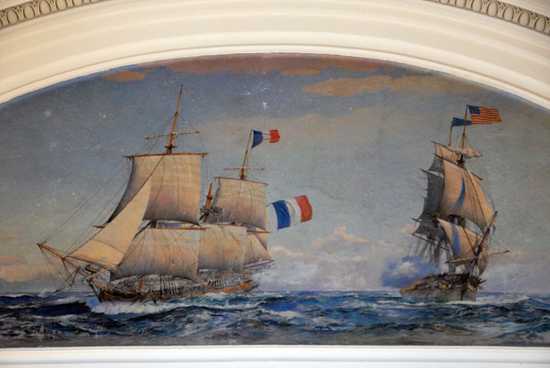
Although France had played a major role in helping win the American Revolution, the United States and France soon found themselves as enemies in a naval war. Two key factors led to the Quasi-War. During this time France was at war with Great Britain during the War of the Second Coalition, and the United States had officially declared their neutrality. Despite this, the United States still traded with Great Britain; an act that in France’s eyes, broke their neutrality. Also during this time the French Revolution had occurred, resulting in France becoming a Republic. This caused the U.S. to stop debt repayments to France, as they claimed their debt was to be paid to the French monarchy, not to the French Republic.
In response to this situation, the navy of France and numerous privateers began to seize American trading ships headed towards Britain, and the French government refused to negotiate. As American trading took a huge hit over several months, Congress authorized attacks on French warships. A fleet of 54 American ships were dispatched to patrol the Pacific July 1798 with orders to destroy or capture French privateers.
Losses on both sides were light. In 1800 France and the United States came to an agreement to stop hostilities and resume free trade.
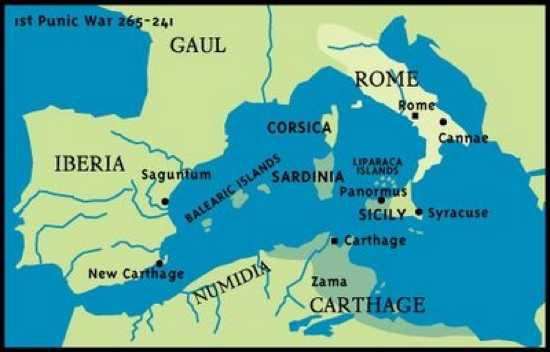
While none of the Punic Wars are well-known, the third war was of particular importance for Rome. The Second Punic War is likely most prominent. Even if you’ve never heard of the war itself, you’ve probably heard the tale of Hannibal’s terrible idea of marching an army of elephants through the Alps in an effort to take the Romans by surprise.
Carthage was a major power of North Africa and had been a thorn in the Roman Republic’s side for some time. While the first and second Punic Wars had been fought all throughout southern Europe and northern Africa, the Romans decided to take the fight to Carthage in 149 BC. Roman forces laid siege to the city of Carthage for three years until the city and their empire fell. This was a major victory for Rome, giving them a foothold in Africa and control of a large part of the Mediterranean Sea.
One interesting tidbit about the Third Punic War: Due to there being no record of any official declaration to end the war, the mayors of Rome and Carthage met in 1985 to ceremonially make peace. This meeting brought the Third Punic War to an end after 2,134 years.
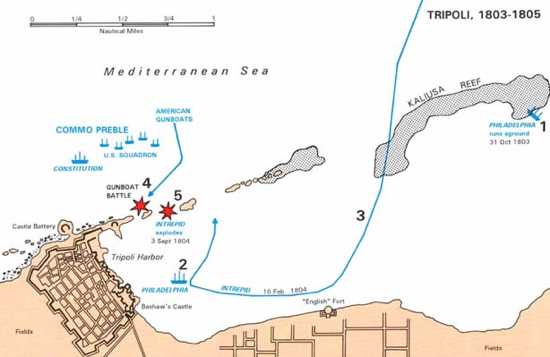
The First Barbary War was the first war fought between the United States and the Barbary States (modern Morocco, Algeria, Tunisia, and Libya). Barbary pirates had been raiding ships along the African coast and in the Mediterranean, and taking the crews of the merchant vessels hostage to ransom back to their home country.
Diplomatic talks with the Barbary States fell through, resulting in Tripoli declaring war on the United States. The first battle of the war occurred on August 1, 1801 when the USS Enterprise captured the corsair Tripoli. Over the next three years, the American fleet blockaded Barbary ports and attacked enemy fleets.
In the spring of 1805 American marines and hired mercenaries attacked by land and captured the city of Derna. As Tripoli continued to be attacked by sea and now had enemy forces pushing ever closer by land, the United States and Tripoli signed a treaty to end the war, which included a payment of $60,000 to the Barbary States to release all American prisoners.
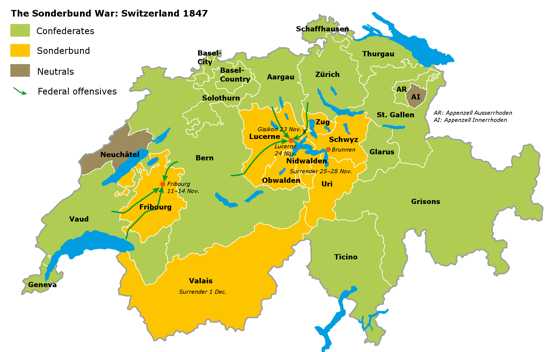
Switzerland is often thought of as being a country that remains neutral and does not get involved in armed conflicts. In 1847 Switzerland found itself in a war with an unusual enemy: itself. Civil war broke out in November 1847 when several Catholic cantons (administrative divisions) formed the Sonderbund and broke off from the rest of the largely Protestant cantons to prevent the formation of a centralized government.
The fighting between the Swiss government and the rebelling cantons lasted only twenty-six days and ended with the surrender of the rebels. Throughout the month of fighting, only eighty-nine were killed. Several months later a new constitution was enacted, ending the independence of the cantons and transitioning Switzerland into a federal state.
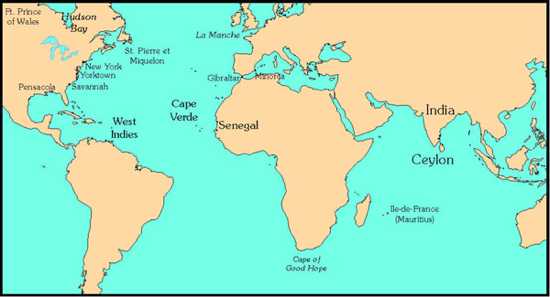
Many would think the fighting in the American Revolution would take place, well, in America. However, the American Revolution was fought as far away as Europe and India, with France and Spain leading those fronts.
Besides lending aid in American lands, French and Spanish forces “ran interference” all around the world. France had an alliance with the anti-British Kingdom of Mysore in southern India. French soldiers and ships stationed in India helped the Mysore Kingdom fight the British in the simultaneously occurring Second Anglo-Mysore War.
Spain used Britain’s fighting in the Americas to their advantage. While Spain sent soldiers and money to help the Americans, they also saw Britain’s vulnerability in Europe and decided to launch attacks to retake lands captured by the British during the Seven Year’s War. Spain fought the British on the islands of Gibraltar and Minorca, throughout the West Indies, and in mainland America.
France and Spain’s aid proved to be invaluable to the rebelling Americans, with both allies playing key roles in the defeat of Britain.
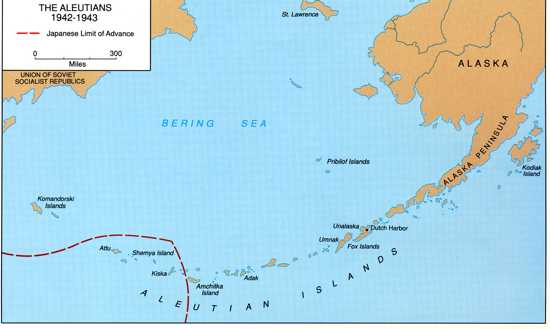
The Aleutian Islands Campaign of World War II is a little known but important campaign, as it saw Alaska (a then territory of the United States) invaded by Japanese forces. The Aleutian Islands are a chain of islands off the southwestern coast of Alaska, part of the “arm” of islands that stretches into the Pacific Ocean.
The Japanese invasion began with an attack on Dutch Harbor followed by a strategic retreat, then another attack further west on the island of Adak. American forces there were defeated, allowing the Japanese to capture the islands of Kiska and Attu unopposed. Within the month American forces staged a counterattack and over the next fourteen months, American and Canadian forces slowly beat back Japanese infantry and ships, successfully retaking islands.
A grim series of incidents took place when the Allied forces retook Kiska. The island was found to be abandoned. Unbeknownst to the Americans, Japanese forces had evacuated almost three weeks prior. However, many friendly fire incidents occurred once infantry landed on shore. Coupled with frostbite and Japanese booby traps left behind, 313 men lost their lives retaking an empty island.
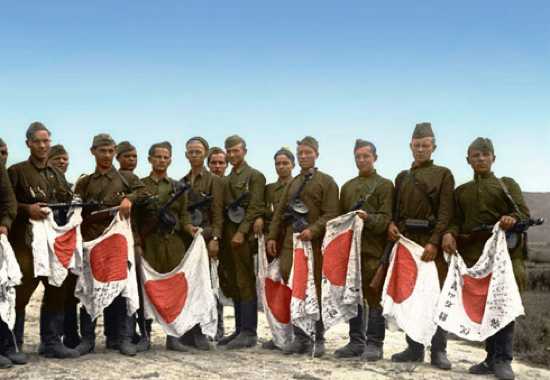
Unknown to many, the Soviet army played a large role in the surrender of Japan. Stalin had agreed to join the fighting in the Pacific theater once Germany was defeated. On August 8, the day before atomic bombing of Nagasaki, the Soviet Union declared war on Japan and took them by surprise by launching three separate invasions into Manchuria only twenty-four hours later. The Kwangtung Army that was defending the region was largely destroyed and was forced to surrender.
After conquering Manchuria, Soviet forces launched an attack into northern Korea, but their aims of controlling the entire peninsula were defeated when the Japanese government surrendered to the Allied forces. With the Soviets quickly advancing through their territories and the imminent invasion of the mainland, Japan could no longer hold out.
In less than a month, the Soviet Union had managed to retake land lost during the previous Russo-Japanese War, crush a major Japanese army group, and liberate Manchuria.
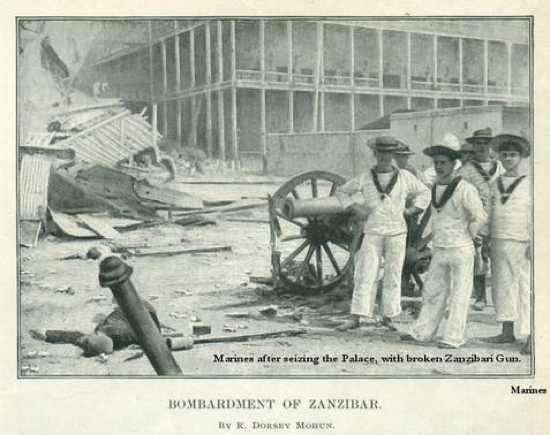
The Anglo-Zanzibar holds the distinction of being the shortest war in history, clocking in at 38 minutes.
When Khalid bin Barghash, the new Sultan of Zanzibar came to power in 1896, he wanted the country to be free from British control. One requirement by the British was for the new Sultan to seek permission for enthronement from a British consul. Barghash refused, which the British did not take lightly. They offered him a choice: leave the palace by his own free will or be removed forcefully.
When the appointed time came to make his decision, the Sultan responded by barricading himself within the palace and scrambling a defense force. Five British military vessels were in the harbor outside the palace and opened fire once the deal had expired.
Three Zanzibari ships were sunk, shore defenses were destroyed, and a handful of defending soldiers were killed. Although the fighting lasted less than an hour, over 500 Zanzibaris were killed or wounded, most from fires raging within the palace. British forces suffered one wounded and no deaths. After surrender, Sultan Barghash was deposed and granted political asylum in German East Africa while a new pro-British Sultan was installed.








